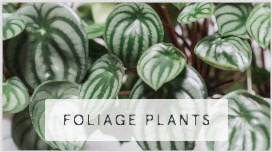How to Protect Your Outdoor Garden From Animals

How to Protect Your Outdoor Garden From Animals
Growing an outdoor garden can provide a steady source of healthy, fresh, organic fruits and vegetables for your household. It’s a fun way to supplement a healthy diet and connect with nature. With just a $70-$350 investment, you can reap up to 300 pounds of produce per growing season, and enjoy around $600 worth of grocery store veggies!
However, uninvited guests may find your lettuce and cucumbers to be tasty treats too. Wild animals like mice, rabbits, deer, and other burrowing creatures love to sneak a quick bite when you’re not looking. By protecting your garden with some tried and true methods, you can reduce the amount of crop pilfering and save your harvest. Here’s how to protect your outdoor garden from animals.
We Only Promote Humane Methods
The animals eating from your garden are just hungry. They have no malicious intent and therefore should be treated humanely. The following methods will keep animals away without harming them in any way. We don’t endorse any method that harms animals, such as using hot pepper repellents, traps, or poison. By being kind to the animals around us, we can truly have a garden that harmonizes with nature.
Step 1: Find Out Who’s Doing It
Before you make a protection plan, it's important to understand what kinds of animals are coming into your garden. This will help you decide on the most effective strategy.
You can usually tell what type of animal has visited your garden by looking at tracks, droppings, or the type of bites left on plants. For example, birds can peck holes in fruit or berries. They can also steal fruit when it’s still not ripe on the tree. It's easy to tell if groundhogs are around because they usually leave large mounds of dirt near the entrance of their burrows. Also, if your garden has taken a lot of damage in a short time, rabbits, groundhogs, or deer are usually the culprit.
If you’re not sure who has been visiting your garden, then use a security camera to record it for one night to find out who your guests are. After you know what types of animals to mitigate, you can plan accordingly.
Your First Defense: A Fence
Installing a fence is one of the most effective ways to keep out all types of animals. This is a valuable upfront investment to make for first-time gardeners, with cost-effective fencing methods available if you're on a tight budget.
In most cases, a 4-to-5 foot fence is enough to keep out pests like rabbits and mice, however, if you have deer entering your garden, the fence needs to be at least 8 feet high and strong. If there are only a few rabbits to contend with, you can save on costs by using stakes and chicken wire for your fence.
Fences are also one of the only ways to keep out burrowing animals. To do this, your fence must go at least 10 inches into the ground. This will prevent even the most persistent of groundhogs and voles from reaching your garden. By putting a defense up like this from day one, you can prevent a lot of animals from establishing a snack route to your garden.
Use Raised Garden Beds
Using a raised garden bed can also offer substantial protection. It is above ground so burrowing animals can’t get to them. Also, they can be high enough to be out of reach from even the most energetic of rabbits. Single plants can also be raised in elevated pots for your peace of mind. For the most effective prevention, make your raised bed at least two feet taller than the ground. This method can be combined with a simple chicken wire fence for added protection.
Keep Your Compost Contained
Compost is useful for providing low-cost fertilizer to your garden, but this nutritious heap can also attract animals. To prevent animals from feasting on your hard work, put your compost in a self-contained bin that has a secure lid. The same principle goes for anything enticing in your yard. Keep any pet food or bird feeders away from your garden so that animals don’t catch wind of your goods.
Use Bad Smells
Humans don’t like hanging around bad smells, and animals are no different. Try surrounding your vegetables with plants and flowers that are repulsive to them. For instance, deer find barberry, bluebeard shrubs, winterberry holly, coral bells, summer lilac, and abelia to be repulsive. When you find out what animals are coming to your garden, start planting the shrubs or flowers they don’t like around the area. This can deter some animals from entering your garden.
Protection Against Birds
If birds have been pecking away at your garden, there are some effective solutions to keep them away. Metallic streamers are a classic and humane bird repellent. Birds can’t stand to be around this reflective material. This item also keeps pesky woodpeckers away, who like to damage roofs and other woodwork. Change the position of the streamer or other scarecrow devices to trick the birds into thinking that there is something active and alive in that location.
If you have new sproutings or a bush that is just blossoming, place bird netting over these edibles the week before they ripen. This will protect the fruit from the eager peckings of birds and will save the sweetest harvest for you.
Protection Against Deer
Deer present major threats to gardens because they are fast, strong, and unbelievably hungry. If you notice a large number of veggies missing overnight and some hooved tracks, then a deer is probably visiting your garden. It’s a tough job to keep deer away, but many people have been successful at circumventing this avid visitor.
First, know what you’re up against. Deer are fast and can jump high. A fence needs to be strong and at least 8 feet tall to keep persistent deer away. Though this can be a costlier installation compared to a small rabbit fence, this fence can keep most other animals away too. You can also try to add an extra layer of prevention by planting plants that deer don’t like around your fence, like winterberry holly or summer lilacs.
Guard New Plants
Many gardeners like to start their plants indoors to give sprouts the best chance at survival. It’s also a fantastic way to reuse old yogurt cups and other small containers. When these new plants are ready to thrive outside and you transplant them into the main garden, they will still be vulnerable as they take root. They need to be protected from hungry animals that find new nursery plants especially appetizing.
Animals can sense that a young plant has more micronutrients, so by nature, they are more drawn to them. Guard these new plants with everything you have; fence off the area, cover them, or place them in raised beds. Covers are especially effective. Netting, chicken wire, or garden fabric can stop birds, rabbits, and squirrels from accessing these tender plants. By protecting young plants, they can become stronger and will be better able to survive the occasional peck and nibble from wild animals as they grow.
Predator Urine
If planting repellent plants isn’t possible, gardeners have also found success in placing predator urine around their garden. This is a popular item that can be found online or at a gardening shop. It’s typically wolf urine, which sends the signal to groundhogs and other plant lovers that a wolf is nearby. By tricking animals into thinking a predator is lurking, they are more likely to stay away from your harvest.
Keep Other Animals Nearby
If you have a dog or cat, they can often help with your animal problem. Outdoor dogs can be a strong deterrent to mice and chipmunks. The dog’s presence and scent can signal that a predator is nearby, which keeps garden animals away. Cats are also known predators to mice and other garden animals, so their presence can discourage critters from visiting.
Every Season Is Different
These steps should all be taken as preventative measures that are never 100% foolproof. Sometimes there is a harsh winter that can increase the number of garden visitors. The more desperate the animals are, the harder they will try. Good years in which there is still plenty of food in the wild should be easier to deal with than lean years, so keep an open perspective on the situation. No two seasons are alike, and as long as you do the best you can, you'll be rewarded with your best harvest possible.
Find starter plants and other useful gardening tips at Plantshed. We can help you get the right planters, garden plans, and other necessities to make your green projects thrive.












